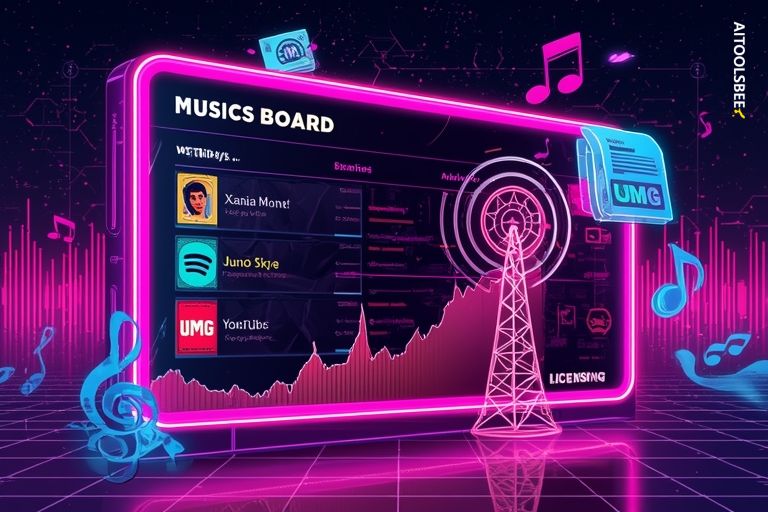
AI-Generated Acts Appear on Billboard Charts Each Week
Right now, mainstream charts are beginning to feature AI music on a weekly cadence, pointing to a shift in how hits are produced, promoted, and consumed.
According to Billboard, at least one AI or AI-assisted artist has appeared on its rankings for four consecutive weeks, a run that signals accelerating momentum for AI music.
Among the names driving the trend are Xania Monet, an AI avatar created by Mississippi songwriter Telisha “Nikki” Jones using the Suno generator app, and Juno Skye, an AI-powered act produced by Nguyen Duc Nam, illustrating how tools are translating into chart presence for AI music.
Label interest has followed quickly, with Xania Monet triggering a bidding contest earlier this month with some labels offering up to $3 million, while the act also debuted on a Billboard radio chart this week after collecting sufficient airplay, adding to earlier entries across multiple charts for the single Let Go, Let God and sharpening debate over how AI music blends artist branding with production pipelines.
The rise has intensified disputes over training data, with apps such as Suno and Udio accused of training on the copyrighted work of real artists, while a cohort of music artists last year urged organizations to cease using artificial intelligence to infringe upon and devalue the rights of human artists, and the shift from litigation to partnership was visible when Universal Music Group settled a copyright lawsuit with Udio and announced a licensing deal to launch an AI creation platform, developments that could shape how labels incorporate AI music into their workflows.
Distribution platforms are also adjusting policies as volumes swell, with Spotify saying it would protect artists against spam, impersonation, and deception yet stopping short of a ban, arguing that "music has always been shaped by technology" and that "at its best, AI is unlocking incredible new ways for artists to create music and for listeners to discover it," a posture that treats AI music as content to be managed rather than excluded.
Audience metrics are beginning to reflect mainstream interest, with Let Go, Let God logging 1.3 million views on YouTube and comments suggesting many listeners prioritize message over provenance, a reception that could encourage more label deals and tooling partnerships and signal to investors globally that licensing routes are forming around scalable AI music ventures.
For enterprise content teams, normalization on major charts hints at a production model where synthetic vocals and songwriting engines sit alongside human creators, with radio play, streaming placement, and licensing making the approach commercially legible, and the broader implication is that AI music is moving from experiment to infrastructure in the cultural economy.

Captures the essence and possibilities of technology within the rapidly evolving world of AI tools.

